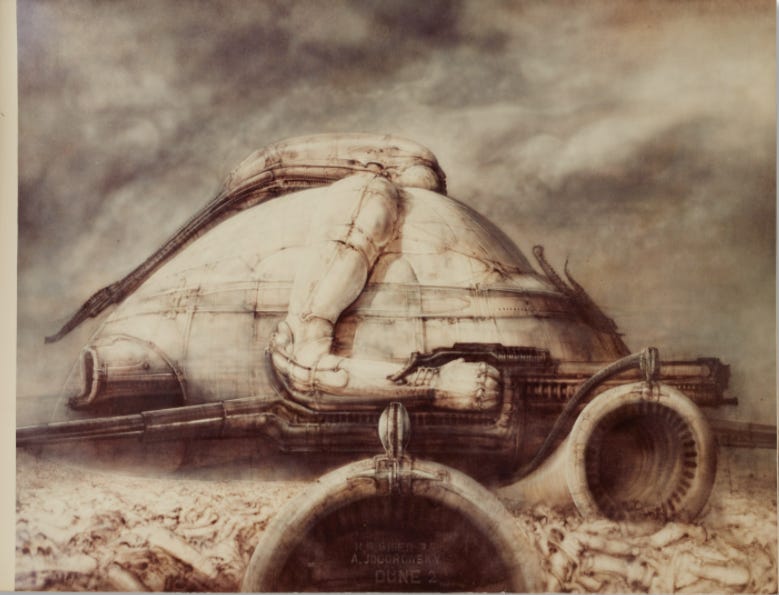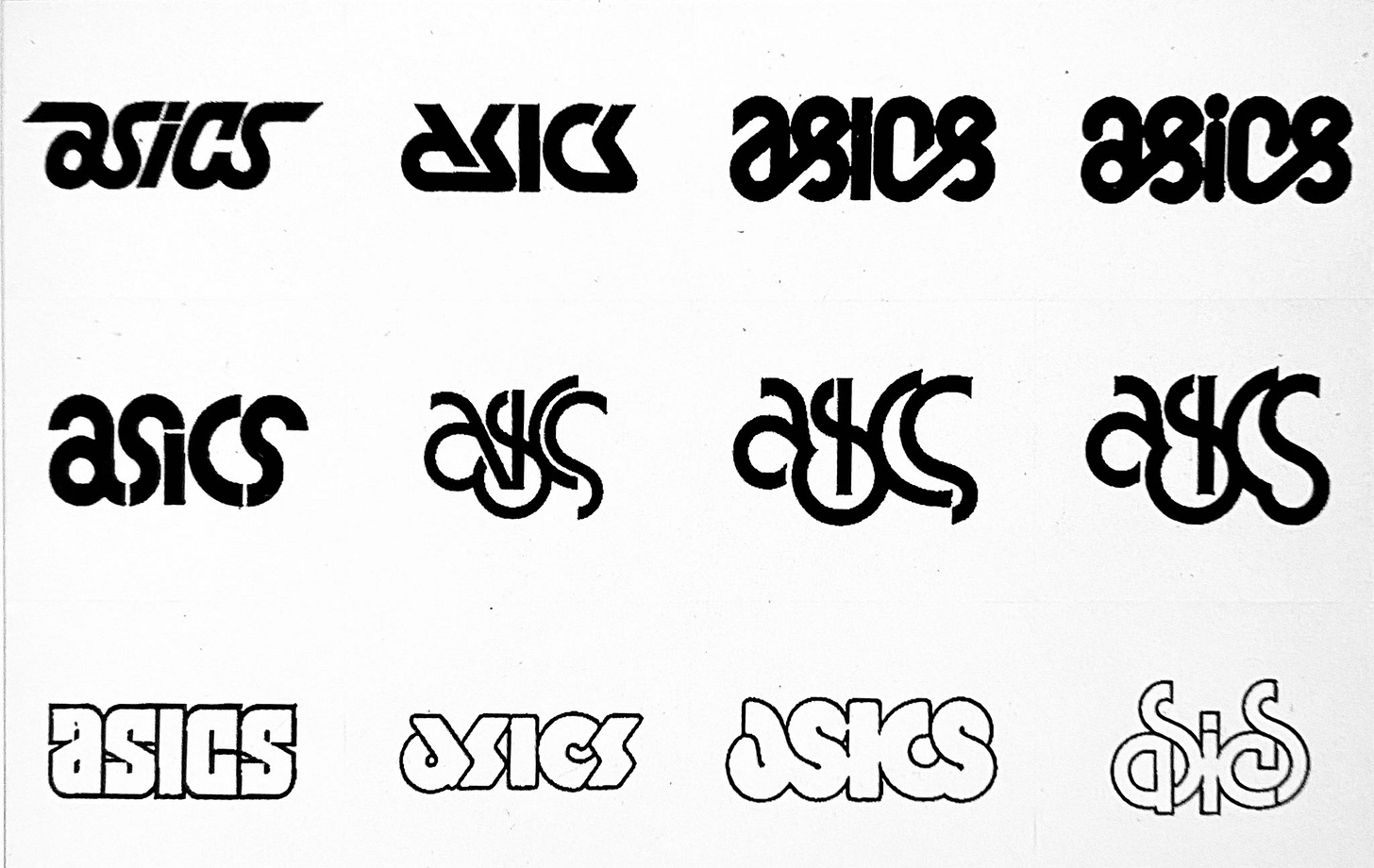Transmission #24: Dune Books, Emigré, Magnificent Bribes, Permacomputing and Neal Stephenson's Baby Goats.
Design, ideas and other flotsam.
Hello. Welcome.
This is Transmissions by me, Martin Brown. Father. Husband. Design Lead at Craig Walker, sometime lecturer at RMIT. Marty to most.
This is an ongoing fortnightly newsletter that collates some of the more interesting stories, links, quotes and other curios that float my way.
If you’re new here, then sign up now to get more of these in your inbox, and don’t forget to tell your friends!
Design
A legendary design artifact goes up for auction this week. It’s the closest we’ll get to one of the greatest movies never made, Alejandro Jodorowsky’s adaptation of Dune. The book was a collaboration between Jodorowski and, principally, the visionary French artist Moebius, but also featured concept-art legends like Chris Foss and HR Giger (whose design for house Harkonnen, below, is a typically terrifying example of his oeuvre). If you haven’t seen Frank Pavich’s 2013 documentary of the tortured, and ultimately aborted, quest to bring the 14-hour (!) adaptation to screen, it’s highly recommended.
Also, as a side-note Hans Zimmer was recently on Song Exploder, talking about his frankly incredible score for Denis Villeneuve’s recent adaptation.
Often imitated, rarely bettered. There’s a huge cache of Emigre magazines archived in high resolution here. Emigre was a magazine, and eventually a type foundry, that was at the forefront of exploring design with digital type and layout in the 1990s. Beautiful.
Ideas
The Magnificent Bribe
Zachary Loeb, Real Life
History may not repeat, but it certainly rhymes. This essay delves into the writings of the Lewis Mumford, who echoes many of the concerns of our times.
Nearly 50 years ago, long before smartphones and social media, the social critic Lewis Mumford put a name to the way that complex technological systems offer a share in their benefits in exchange for compliance. He called it a “bribe.” With this label, Mumford sought to acknowledge the genuine plentitude that technological systems make available to many people, while emphasizing that this is not an offer of a gift but of a deal. Surrender to the power of complex technological systems — allow them to oversee, track, quantify, guide, manipulate, grade, nudge, and surveil you — and the system will offer you back an appealing share in its spoils. What is good for the growth of the technological system is presented as also being good for the individual, and as proof of this, here is something new and shiny.
It’s somewhat refreshing to be reminded that our present worries about technology aren’t actually anything new. We’ve been concerned, perhaps rightly, by the deleterious effects of technology on society since well before Mumford’s time, and probably will continue to be forever.
Quotes
There’s an idea simmering out there, still fringe, coaxed forward by a network of artists and hobbyists: it’s called “permacomputing” and it asks the question, what would computers look like if they were really engineered to last, on serious time scales?
You already know the answers. They’d use less power; they’d be hardy against the elements; they’d be repairable — that’s crucial — and they’d be comprehensible. The whole stack, from the hardware to the boot loader to the OS (if there is one) to the application, would be something that a person could hold in their head.
– The Slab and the Permacomputer, Robin Sloan
Logos of the Week
Initial sketches for ASICS, by Herb Lubalin. He was on another level. (h/t LogoArchive)
Other
💰 How to make US$600,000 as a designer. TLDR: Work for FAANG during the day, freelance as niche specialist for well-funded startups at night. Link
🚛 A 20-year veteran truck driver on why the US supply chain crisis is not going away anytime soon. TLDR: There’s bottlenecks all through a fragmented system, and little incentive for any of the main actors to make significant changes like raising wages for truck drivers and warehouse workers. Link
📰 Why the mainstream media and Zuck don’t get along. Link
🐐 TIL writer Neal Stephenson spent 5 years working at Magic Leap - making baby goats appear on tabletops. 🤦♂️ Link
-
Last edition, I mentioned the great newsletter 10+1, but accidently included a broken link. Sorry Rishi! Folks, try this link instead.






